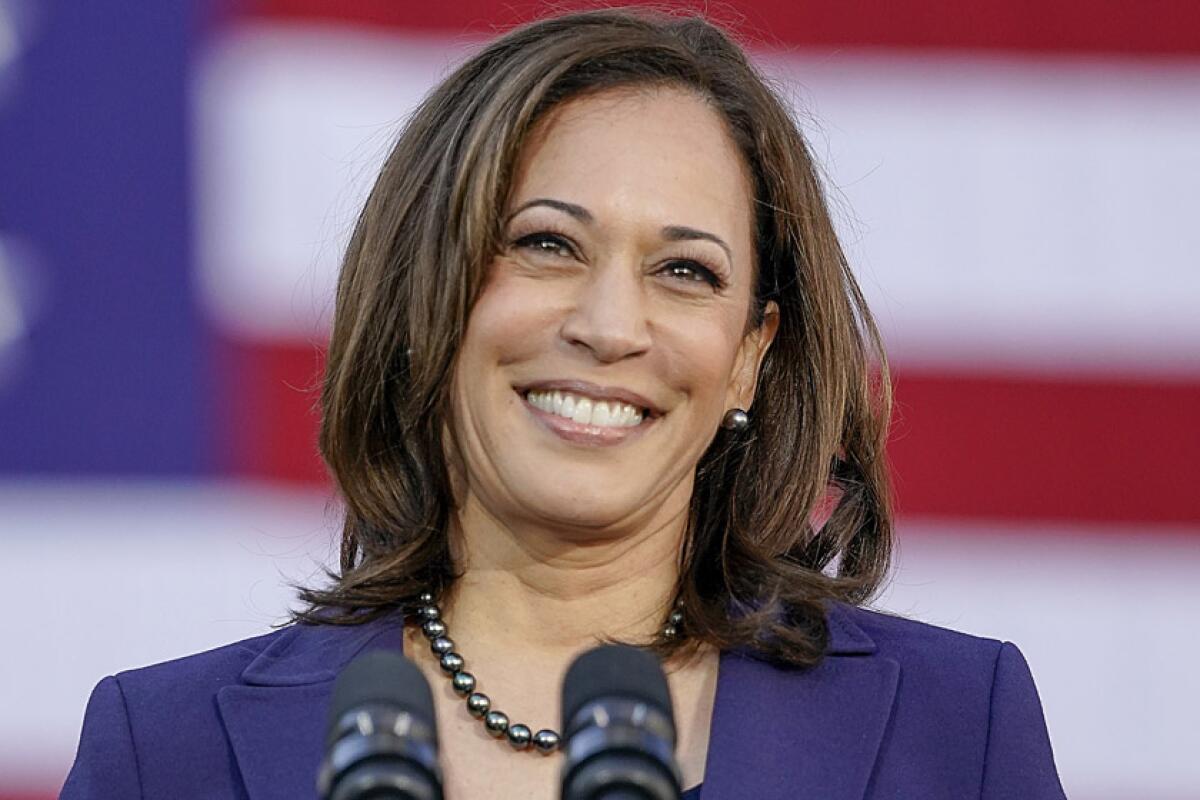Kamala Harris Reaches Out to Crypto Firms as Democrats Shift Stance
30.07.2024 11:00 1 min. read Alexander Stefanov
Kamala Harris is reportedly engaging with major cryptocurrency firms to address her party's previous skepticism towards the industry.
According to the Financial Times, Harris’s team has reached out to leading crypto companies such as Coinbase, Ripple Labs, and Circle. However, while Harris’s office, Coinbase, and Ripple have all declined to comment, Circle has not responded to inquiries from the Financial Times.
A source close to Harris’s campaign revealed that the vice president aims to convey that the Democratic Party now supports “pro-business, responsible business” practices. This outreach reflects a shift from the party’s earlier stance on cryptocurrency.
In contrast, Republican candidate Donald Trump has embraced a pro-crypto position, actively seeking the support of cryptocurrency advocates. At the Bitcoin2024 conference in Nashville, Trump vowed to dismiss SEC Chair Gary Gensler and reverse regulations that hinder the use of digital assets.
He also promised to stop selling the U.S. government’s seized Bitcoin and instead hold it strategically as an investment.
Trump’s vision includes making the U.S. a global leader in cryptocurrency, emphasizing a policy to retain all Bitcoin held or acquired by the government. He envisions this approach as central to creating a national Bitcoin reserve and positioning the U.S. as a dominant force in the crypto world.
-
1
EU Risk Watchdog Urges Stronger Safeguards on Cross-Border Stablecoins
02.10.2025 22:00 1 min. read -
2
U.S. Government Shutdown Stalls Crypto ETF Approvals
03.10.2025 17:41 2 min. read -
3
Trump-Backed World Liberty Financial Eyes Tokenized Commodities and Stablecoin Integration
01.10.2025 12:22 2 min. read -
4
China Establishes Shanghai Hub to Push Digital Yuan Abroad
27.09.2025 19:00 1 min. read -
5
Moody’s Warns Crypto Adoption in Emerging Markets Threatens Monetary Control
27.09.2025 17:00 1 min. read
Trump Family Expands Crypto Holdings Amid WLFI and Token Success
Donald Trump’s second term has coincided with a remarkable expansion of his family’s cryptocurrency holdings, generating more than $1 billion in profits over the past year, according to Financial Times reporting.
OKX and Standard Chartered Bring Secure Crypto Custody to Europe
Crypto exchange OKX is deepening its alliance with Standard Chartered, bringing their institutional custody model to the European Economic Area.
Glitch Leads Paxos to Mint $300 Trillion in PayPal Stablecoin Before Quick Burn
A brief but stunning technical glitch at Paxos on Wednesday led to the creation of 300 trillion PayPal USD (PYUSD) – an amount surpassing the entire global GDP – before the stablecoin issuer swiftly reversed the mistake.
Meta Expands Texas Footprint With $1.5B El Paso AI Data Hub
Meta has announced a new $1.5 billion investment to build a massive data center in El Paso, Texas – its 29th worldwide and third in the state.
-
1
EU Risk Watchdog Urges Stronger Safeguards on Cross-Border Stablecoins
02.10.2025 22:00 1 min. read -
2
U.S. Government Shutdown Stalls Crypto ETF Approvals
03.10.2025 17:41 2 min. read -
3
Trump-Backed World Liberty Financial Eyes Tokenized Commodities and Stablecoin Integration
01.10.2025 12:22 2 min. read -
4
China Establishes Shanghai Hub to Push Digital Yuan Abroad
27.09.2025 19:00 1 min. read -
5
Moody’s Warns Crypto Adoption in Emerging Markets Threatens Monetary Control
27.09.2025 17:00 1 min. read
Kamala Harris may step in as the Democratic nominee for president, potentially succeeding Joe Biden. This shift brings up questions about her economic policies and their impact on the U.S.
Vice President Kamala Harris, the Democratic candidate for the upcoming presidential election in November, recently spoke at a Wall Street fundraiser where she addressed the cryptocurrency industry for the first time.
Yesterday, the current president of the United States, Joe Biden, withdrew from the 2024 presidential race.
U.S. Vice President Kamala Harris has introduced a new economic plan focusing on cryptocurrency regulation and support for digital assets as she prepares for the upcoming elections, where pro-crypto Republican Donald Trump is leading in the polls.
Vice President of the United States Kamala Harris has garnered the necessary support from delegates to receive the Democratic Party's presidential nomination.
According to a recent Bernstein report, Kamala Harris' unexpected lead over Donald Trump in presidential polls seems to coincide with a decline in Bitcoin prices.
Steve Forbes, a prominent American executive and publisher, has criticized Kamala Harris's policies, claiming they would adversely affect the middle class.
U.S. hip-hop artist Ye - still widely known as Kanye West - has unexpectedly entered the cryptocurrency space with a Solana-based token called Yeezy Money (YZY), according to The Block.
The debut of YZY Money, Kanye West’s newly launched cryptocurrency on Solana, has already drawn major attention—and controversy.
In a recent analysis by FireHustle, the strengths and weaknesses of Kaspa were evaluated, along with potential effects on its price and a recommended trading strategy.
Kazakhstan is considering allocating a portion of its gold and foreign currency reserves, along with National Fund assets, into crypto-related investments.
Kazakhstan has unveiled its first stablecoin tied to the national currency, a move that positions the country at the forefront of digital finance innovation in Central Asia.
Kazakhstan is taking bold steps to secure its role in the digital economy, combining government policy, blockchain initiatives, and urban innovation.
Kazakh authorities have dismantled a vast illegal mining operation in East Kazakhstan Oblast that was consuming enough electricity to power an entire mid-sized city.
Kazakhstan is taking a major step toward integrating digital assets into its national financial strategy, with plans to establish a state-managed crypto-reserve.
During Kenya's Taxpayers' Day on November 1, the government announced it had collected $77.5 million in cryptocurrency taxes over the past year.
Kenya is taking a significant step toward embracing the cryptocurrency industry by seeking public input on a proposed regulatory framework.
Nickson Omondi, head of the digital economy tax division at the Kenya Revenue Authority (KRA), announced plans for a real-time tax collection system integrated with cryptocurrency exchanges.
The Kenya Revenue Authority (KRA) is set to upgrade its outdated tax collection system to improve efficiency and transparency.


